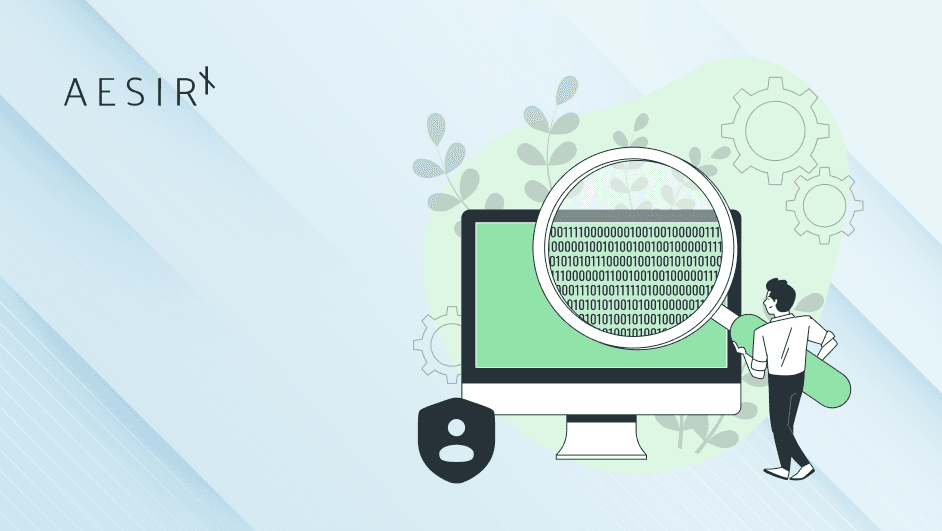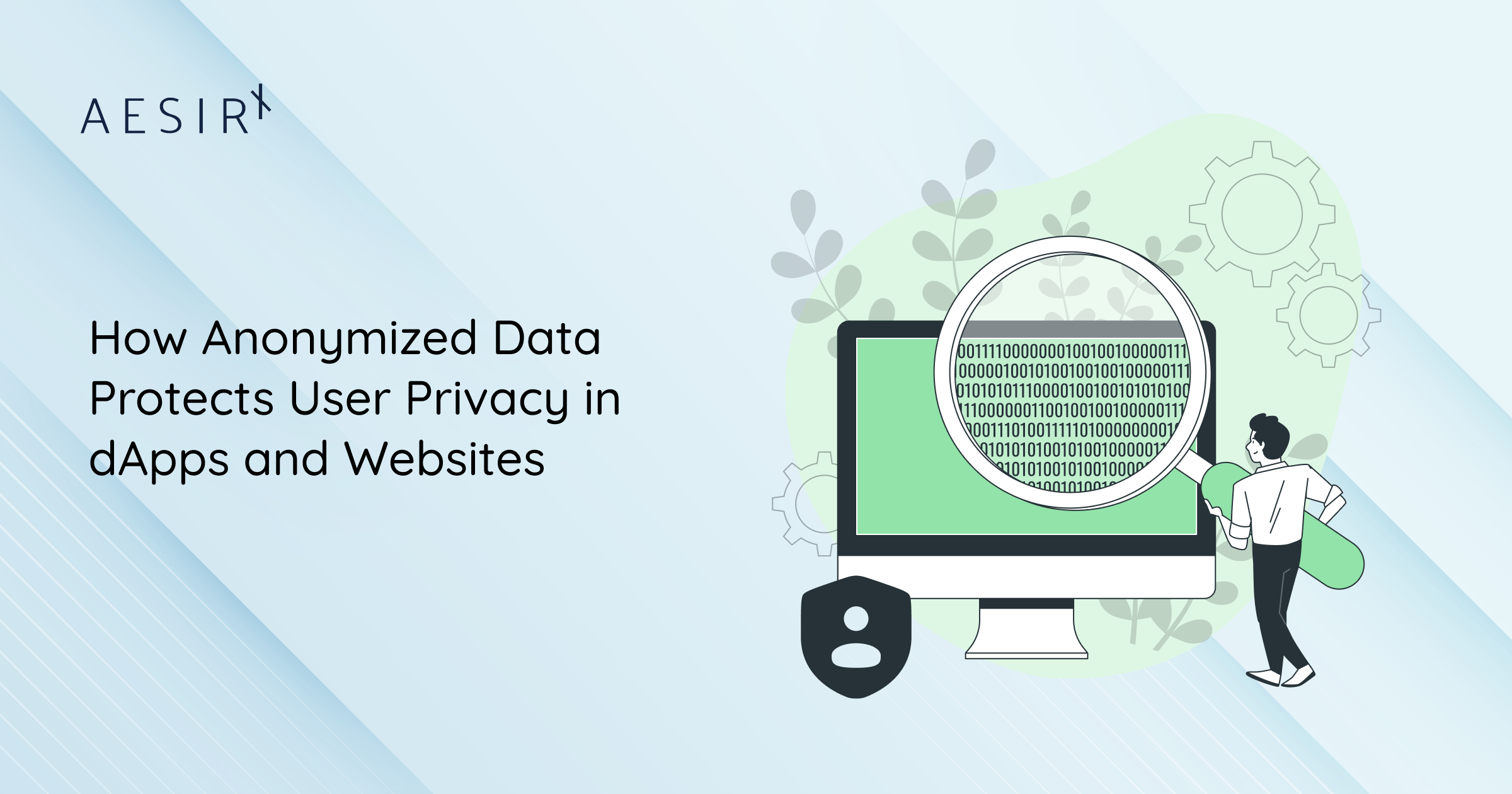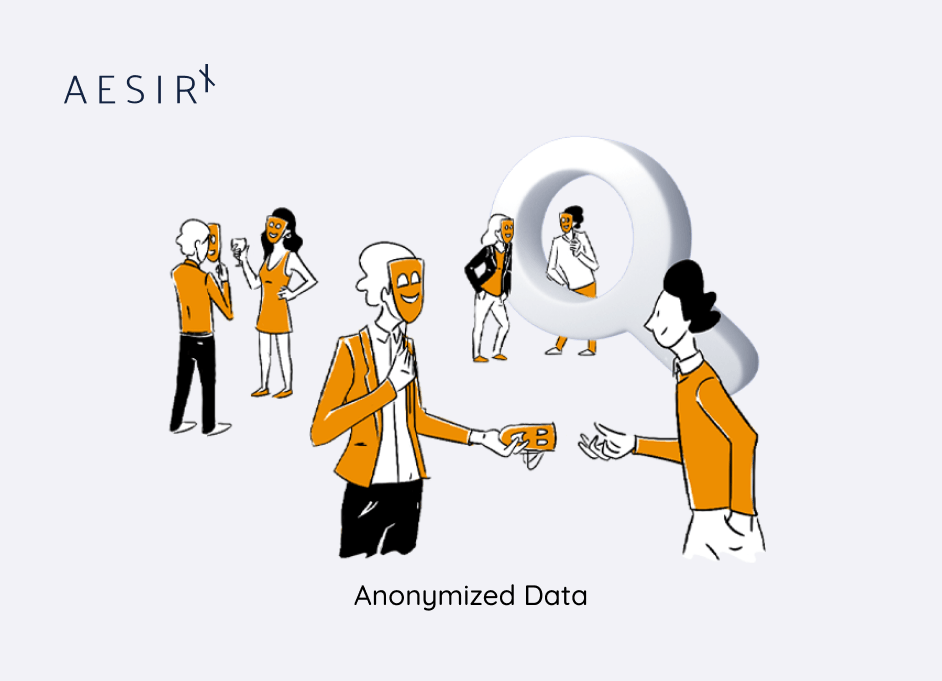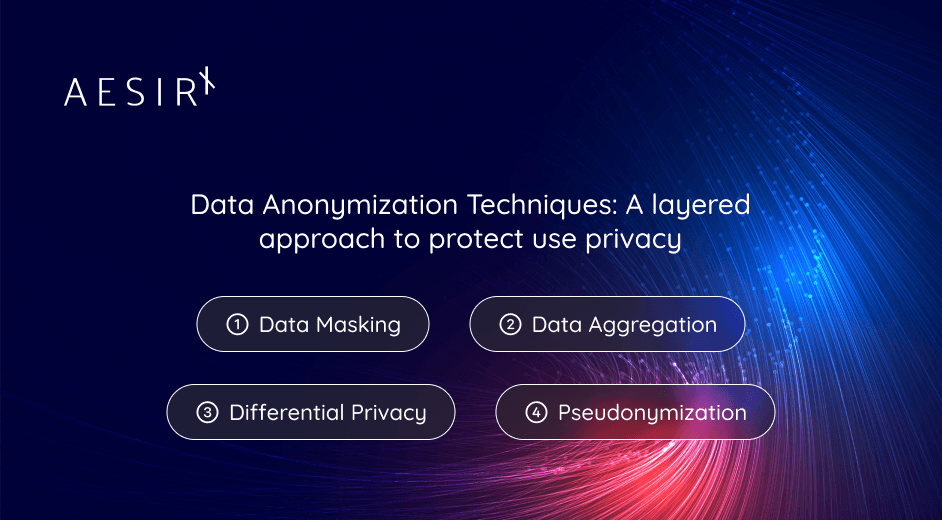Dec 10, 2024
How Anonymized Data Protects User Privacy in dApps and Websites

Imagine you’re browsing a website, making a purchase, or connecting to a decentralized application (dApp) to access exclusive content.
You connect your wallet, approve the transaction, and continue.
But a question lingers—how safe is your privacy and personal information? Who's seeing or using your data?
The good news is that anonymized data ensures personal details stay protected without sacrificing functionality.
But what is anonymized data, and how does it improve privacy across both dApps and websites? We’ll explore this further.

Understanding Data Privacy on Websites and dApps
Traditional websites collect user data to personalize experiences, process payments, or track behavior. This data is often stored in centralized databases, making it vulnerable to potential breaches or misuse. While convenient, this setup can put user privacy at risk.
In contrast, decentralized applications, or dApps, run on blockchain networks without a central authority, offering added security and transparency. However, dApps can face privacy challenges when users share sensitive information like wallet addresses or transaction details.
What is Anonymized Data?
Anonymized data is information that has had identifiable details reduced or removed, significantly reducing the likelihood of linking it to a specific individual. Personal information such as names, email addresses, and IP addresses are minimized or excluded to ensure user privacy.
Anonymization is used in both decentralized applications (dApps) and traditional websites to protect users. Even when data is collected for analysis or to improve user experience, it cannot easily be traced to any individual.

How Anonymized Data Improves Privacy
1. Protects User Identity
Anonymized data keeps personal information, like your name or wallet address, separate from your activities on a platform. This minimizes the risk of linking your identity to your actions, even if hackers access the data.
2. Helps Meet Privacy Regulations
Both dApps and traditional websites must follow privacy laws such as GDPR, CCPA, and the ePrivacy Directive. Anonymized data is less likely to be classified as personal data, making it easier for platforms to comply with these regulations without sacrificing user privacy.
3. Builds Trust with Users
Users prefer dApps and websites that prioritize their privacy. Knowing that their data is anonymized makes users feel secure and increases their willingness to engage with the platform.
4. Reduces the Impact of Data Breaches
Data breaches can expose personal information, but anonymized data remains meaningless to cybercriminals. Even if intercepted, well-anonymized data protects users’ identities, limiting exposure to general patterns rather than personal details.
5. Increases Security in Decentralized and Centralized Environments
dApps operate on decentralized networks that enhance security by distributing data across nodes, reducing the risk of a single point of failure. However, each node could potentially be vulnerable due to outdated software, misconfigured settings, or exposure to malicious actors exploiting weak points in the network. Anonymizing data provides better protection for personal information, even if a node is compromised. Similarly, on traditional websites, anonymized data safeguards user identities in the event of a server breach.
How Is Data Anonymized in dApps and Websites?
Data in dApps and websites is anonymized through several key methods. These techniques help protect user privacy while allowing for useful data insights.
- Data Masking: Sensitive information is replaced with fictitious data, such as a user's name being changed to a random string like "XyZ123."
- Data Aggregation: Individual user data is combined to present overall trends without revealing identities. For example, stating that "60% of users visited this page" does not disclose who those users are.
- Differential Privacy: Random changes are made to data sets to prevent the identification of individuals while still enabling analysis. For instance, if 100 users reported liking a product, the count might be altered slightly to avoid pinpointing individual responses.
- Pseudonymization: Personal identifiers, like names or email addresses, are replaced with pseudonyms such as "user12345." This allows tracking without revealing identities, and the data can only be linked back to individuals through separate keys.

AesirX Shield of Privacy to Protect User Data on dApps and Websites
AesirX Shield of Privacy uses Concordium blockchain technology to safeguard user privacy on both decentralized apps (dApps) and regular websites. It employs data anonymization, pseudonymization, zero-knowledge proofs, and decentralized identifiers for safe online interactions.
Key Features:
⮕ Data Anonymization:
This process removes personal identifiers from data, making it impossible to trace back to individuals, protecting confidentiality.
⮕ Pseudonymization:
AesirX replaces personal information, such as emails, social media accounts, or wallet addresses, with fake identifiers to keep users' real identities hidden.
⮕ Zero-Knowledge Proofs:
Users can confirm facts like age or identity without sharing personal data, allowing private verification.
⮕ Decentralized Identifiers (DIDs):
DIDs are unique digital IDs that users own, enabling secure authentication on websites and dApps without a central authority. They give users control over their information and let them share only what is necessary.
Why It Matters:
The AesirX Shield of Privacy does more than anonymize data – it integrates sophisticated privacy tools designed to give users full control and confidence over their digital interactions on both traditional websites and dApps.
As a Consent solution, it allows users to specify exactly which data can be shared and under what conditions, complying with regulations like GDPR and building trust by giving users full control over their data.
With Concordium blockchain integration, AesirX Shield strengthens transparency and security, protecting personal data and supporting compliance with data privacy regulations.
Summary
Anonymized data is important for keeping your personal information safe when using decentralized apps (dApps) or regular websites. It hides identifiable details so that others cannot connect your identity to your online activities. This helps protect your privacy, meets data protection laws like GDPR, and builds trust in the platforms you use.
Learn how AesirX Shield of Privacy uses advanced privacy tools and blockchain technology to protect your data on dApps and regular websites.